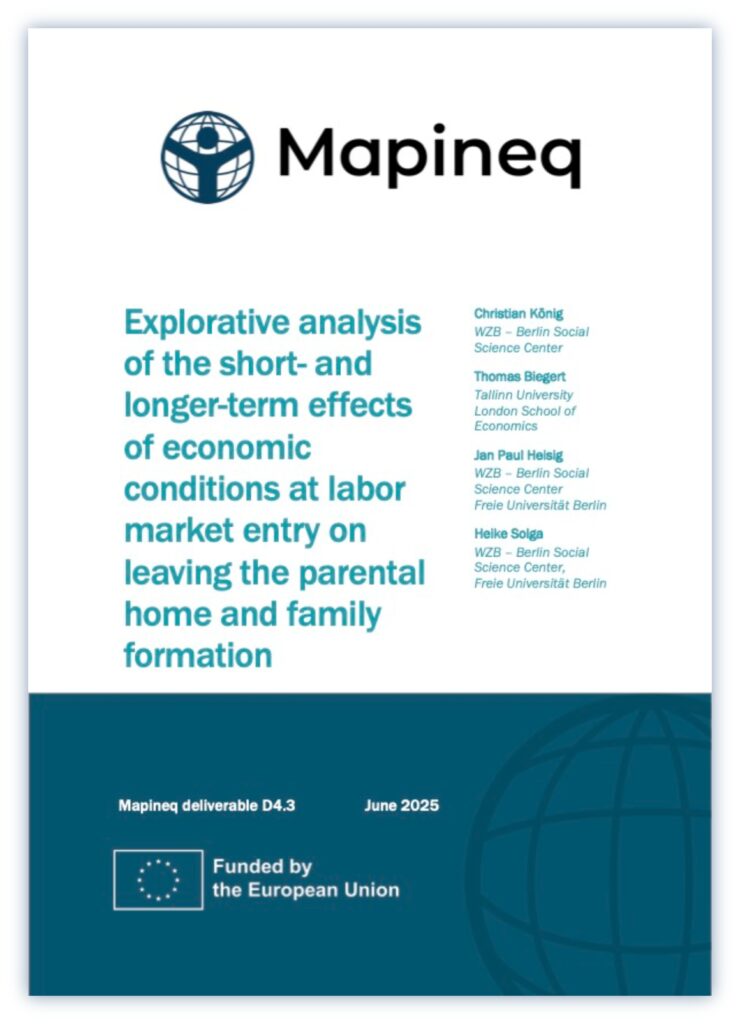Explorative analysis of the short- and longer-term effects of economic conditions at labor market entry on leaving the parental home and family formation
This report examines the lasting effects of labor market conditions on union formation, fertility, and leaving the parental home. Using EU-LFS data, we analyze entry cohorts from 2001 to 2011 from 103 European regions. We focus on regions because they are closer to individuals’ actual labor markets than the national level and also explore the role of family-related contextual factors that may influence the costs of parenthood.
By Christian König, Thomas Biegert & Jan Paul Heisig and Heike Solga.

When unemployment rates are higher, less-educated women have a higher probability of having at least two children 7 years later, while parenthood of men is largely unaffected by entry conditions.

When unemployment rates are higher, tertiary-educated young adults (particularly women) have a lower probability of leaving the parental home and having children.

Family-related policies (at the country level) tend not to impact the long-term consequences of poorer initial labor market conditions on these family-related transitions.

